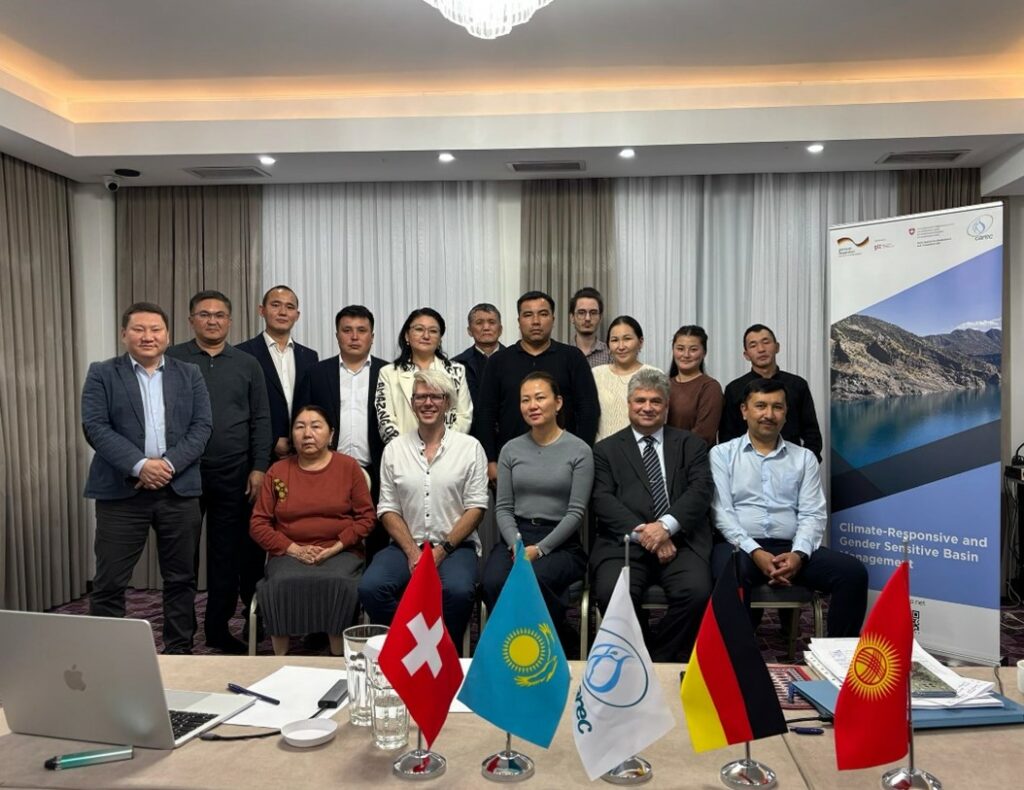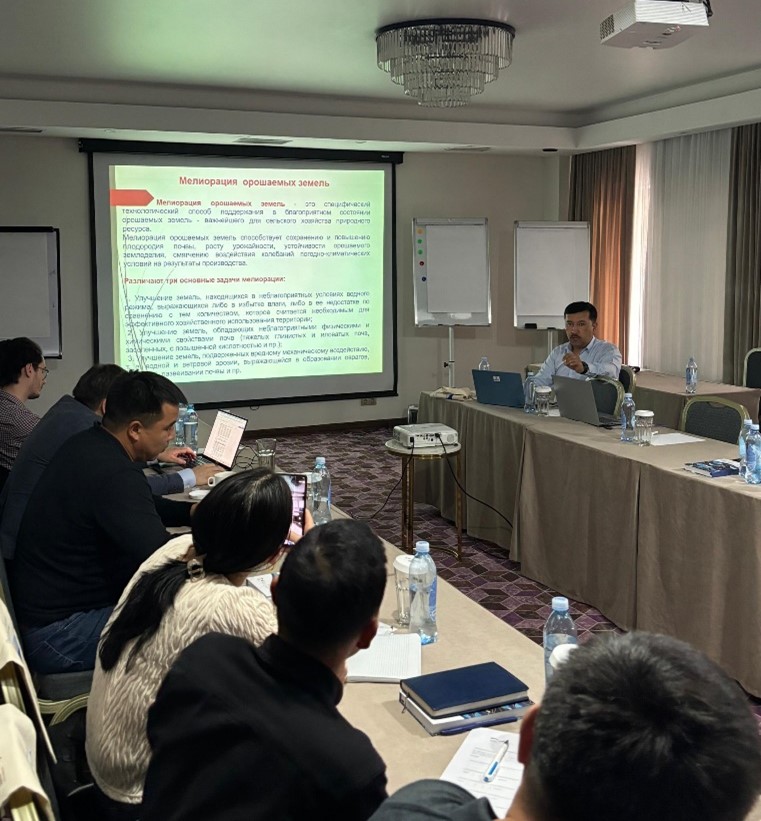Bishkek, Kyrgyzstan – On October 22, 2024, a transboundary training on water resource management considering climate impact concluded in Bishkek. The training involved specialists from the Chu-Talas Basin Inspection of the Republic of Kazakhstan and specialists from the Chuy and Talas Main Water Management Departments of the Kyrgyz Republic.

The bilateral format of the training enhanced the effectiveness of learning through established dialogue and experience exchange among participants responsible for managing, regulating, and protecting the shared basin of the Chu and Talas rivers.
The training was conducted as part of Component 2 of the regional project “Climate-Resilient Water Resources Management in Central Asia” (2024-2026), funded by the German Federal Ministry for Economic Cooperation and Development (BMZ) and co-financed by the Swiss Agency for Development and Cooperation (SDC).
The project’s goal is to strengthen the capacity of regional and national water sector specialists in Integrated Water Resources Management (IWRM) with a focus on climate impact.

The training covered the following topics: climate-resilient IWRM, international regulatory principles and mechanisms for managing transboundary water basins in Central Asian countries, automated water accounting, irrigation technologies, and land reclamation techniques for various agro-climatic conditions. Participants were also introduced to modern web-GIS services for adaptive basin planning.
Discussions during the training highlighted the importance of an inclusive approach and gender perspectives in water management and governance. A review of the gender situation within water management organizations, along with expert recommendations to overcome barriers that women face in water sector, helped raise participants’ awareness of the significance of gender aspects in water management.
“This seminar has opened up a lot of interesting and useful insights for the participants. I would particularly emphasize the importance of addressing such a crucial topic as gender-sensitive basin planning. This training serves as a stepping stone for many women to expand their opportunities and fulfill their ambitions to climb the career ladder, especially in the water sector, which is predominantly male-dominated among hydraulic engineers,” shared Aigul Abdirova, Chief Specialist in Water Resources Monitoring, Department of State Accounting and Cadastre, Chu-Talas Basin Inspection.
By the end of 2025, ten transboundary trainings will be implemented for the Chu, Talas, Syrdarya, Amudarya, and Zarafshan river basins.
For more information on the project:
Contact – Irina Yugay, Project Manager (Water Initiatives Support Program), wisspecialist@carececo.org

